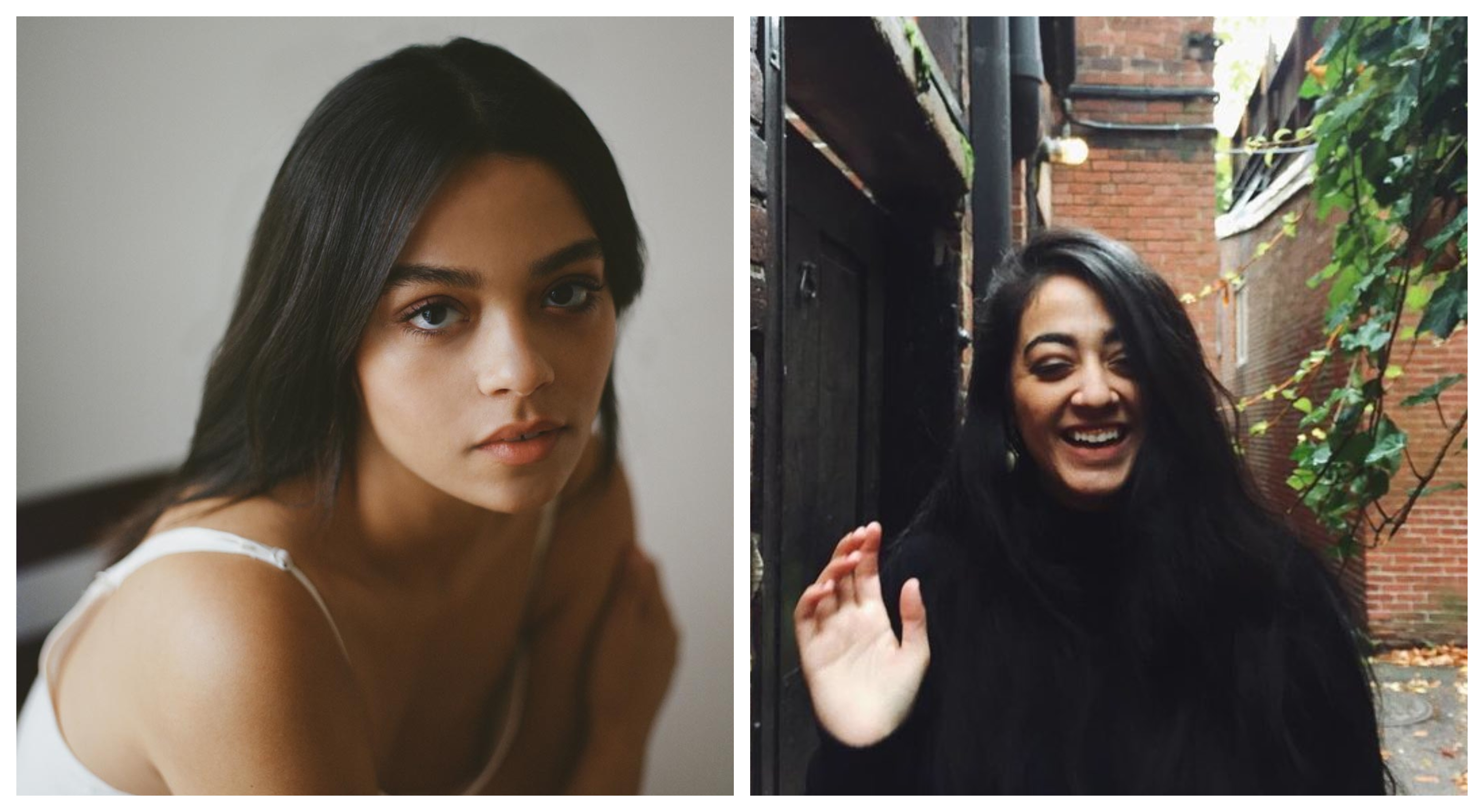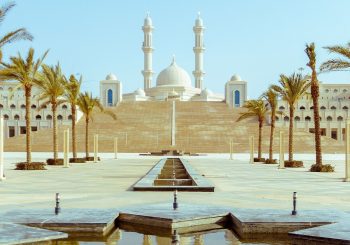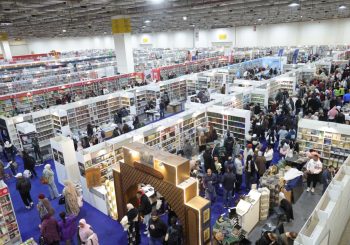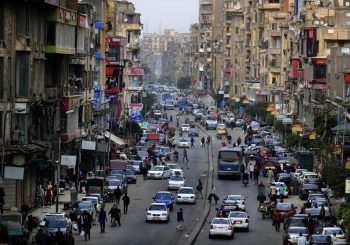Searching for a sense of place; of identity and belonging, change is the only constant in their lives. From frequent good-byes and moves, to being exposed to cultural clashes and conflicting views, there are both challenges and yet opportunities that shapes their character and distinguishes them from the rest.
Hager ElDaas and Mna ElDaas are two Egyptian sisters that are turning these experiences into tangible stories through their podcast ‘Yalla Bye’; creating a space for open and honest conversations that bring to the spotlight the importance of understanding third culture women, and in return drive for their inclusion in societies.
Egyptian Streets spoke with them to understand more about their experiences, the story behind ‘Yalla Bye‘ and why it is ever more pertinent today.
View this post on Instagram
First, tell us more about yourselves – what do you do?
Hager: We both live in Queens, New York, in the same house. I’m the older sister, so there were definitely high expectations for what I’d end up choosing as a career. I jumped around with what I studied in college. I started off as a Biology major, went on to Humanities and then finally landed on Journalism. I’m a copywriter making the transition into full-time journalism.
I think all the jumping around between areas of study and careers actually helped me realize that journalism is really what I wanted to do.
Mna: I’m a model and a social media coordinator. I’ve been fascinated with fashion from a young age, but I also recently discovered how much I love music and books and I’m considering careers that bring me closer to those interests.
In your own words, how do you define a third culture kid?
Hager and Mna: For us, being a third culture kid meant that we were raised in a culture other than that of our parent’s culture. At home, I experience a way of living and outside home, I experience a completely different way of living.
Being in NY adds another layer, because we grew up with kids who had parents who emigrated from all over the world, and so we were also experiencing other cultures. All that has led us to grow up between different identities, making up our own culture that’s unique to us.
As two Egyptian sisters living abroad, how did your identity as an Egyptian evolve overtime?
Hager: I was born in Egypt and came to the United States when I was two years old. I’m not sure if being born in Egypt has anything to do with it, but I’ve always felt really connected to my roots. I’ve always yearned for Egypt in a way. But I will say that as I grew older, I started feeling like I wasn’t 100% Egyptian in the way that my cousins in Egypt were. But still, my culture is a huge part of my identity, and I’ve also had to accept that grappling with how Egyptian I am or am not has also been a huge part of my identity.
Mna: It changes all the time. Sometimes I feel so disconnected and other times I’m more attached to my culture than ever before. At this stage in my life, I can’t get enough of it. I’m so excited to see so many interesting people coming out of our region and I am always eager to meet more and more people who share my culture and heritage.
As women, what are the major difficulties you face, such as in marriage and relationships?
View this post on Instagram
Hager: I think in our culture, raising a girl is still scarier for parents than it is raising a boy. Now take that and magnify it when it comes to raising a girl in a Western country, where immigrant parents may feel like anything goes and they won’t be able to rein us in.
I think there was just a lot of fear from the Arab community that we’d lose sense of our values and our culture and that we’d become too Americanized. So, a lot of parents were really strict on their kids, especially their girls, which actually almost always resulted in the opposite results than they wanted.
Thankfully, I feel really privileged that my parents didn’t raise me or my sister that much different than they did my brother. We used to live in a neighborhood with a lot of Arabs, and I was always super conscious of what people would say if they saw me coming home too late or with a guy or something, so that did create a paranoia that didn’t have to be there, I think.
Because the Arab community here is so tight-knit and everyone knows everyone – which also has its benefits – it did sometimes make me feel like I was being watched. A tant (aunt) or uncle would have definitely gone and told my parents if they saw me doing something they didn’t approve of!
When it comes to dating, again, I feel privileged because my parents have always made it clear that they approve of us dating outside of Arabs, and that’s definitely not the case with a lot of my friends whose parents would be very upset if they did. So, I never felt limited. But in my heart of hearts, I would love to end up with someone Egyptian or Arab, someone who understands our rich culture and can bond over that with me.
Mna: Sometimes it’s a little easier for me to connect with people outside of my culture when it comes to dating. I still haven’t really figured out why. I do love Arab men and ideally would love to settle down with one, but I’m not opposed to dating outside of my culture. I think when you’re an Arab woman living abroad it can feel like all eyes are on you, like any “slip up” you make will be magnified and scrutinized and I think that’s a little different for men.
Your podcast is very real and personal, was this intentional and why? And how do you hope to create change in your community?
View this post on Instagram
Hager: Honestly, we just walk into recording each episode and try as much as possible to forget that someone else will be listening to it. We end up acting how we would if no one were to ever listen to it, and sometimes that makes me feel like we’re super unprofessional.
But over and over again, we get the comment that people love that we’re so unfiltered and they feel like they’re in the room with us and like we’re all a group of friends just having candid conversations. So, it’s become something very sacred for us and we’re trying to protect it. There are times we say something and then agonize over what people will think, but honestly everyone who listens to us feels like a friend. So many people message us and extend the conversation after the podcast, and I feel like because we try as hard as possible to be authentic, people are with us too. Our goal was always for it to be a two way conversation. It feels kind of like therapy.
Mna: Yes! I hate that Arab women feel so censored all the time. We curse, we talk about dating and about mistakes we’ve made. We fight on the podcast! We definitely wanted to take the more unfiltered approach.
How have you been able to cope with the cultural clashes?
Hager: There are areas where there are clashes. For example, as Americans, we’re taught to be very individualistic and Egyptians are so community driven. There are clashes when it comes to thoughts on marriage or career choices, even body image. But there are also clashes between us who were raised here and our parents who started a family here, but are trying as much as possible to hold on to how things were back home. All these differences make us who feel very much of both cultures feel like we have to constantly be defending and protecting one side to the other and vice versa.
So, I think the third culture kid experience is so much about trying to grapple with two sides of the spectrum and trying to balance what you love about both, because there is so much to love about both. And in the process, we end up making our own culture. I probably can relate more to an Egyptian-American than I can to someone in Egypt or an American who doesn’t have a clue about my culture. And as much as I hated it when I was young, I really have grown to love the community we’ve made here of people like us, trying to figure things out and bonding over that.
Mna: I think the biggest clashes have been around how much freedom I can get. Not just with the big life choices but small things too. I think Arab culture just gives more weight to group decision making, and American culture values individualistic thinking, which is awful in some ways but it does give a bit more freedom.
What do you hope people take from your podcast stories?
Hager and Mna: Ultimately, we hope that people who listen to us feel seen. When we get messages saying things like “wow, what you said today, I thought no one else felt this way” or “thank you for articulating this thought for me” or anything of this sort, we feel like we’re doing something right.
Building a community is really important for any project we do, and for us that’s the ultimate goal – to feel that we were able to create a space for people to not only talk to us but also each to other.
We also want to entertain others and not take ourselves too seriously. If we make someone laugh or lighten their day in anyway, we feel proud of that.







Comments (5)
[…] ‘Grappling with How Egyptian I Am is Part of My Identity’: Meet the Podcasters Sharing T… […]
[…] ‘Grappling with How Egyptian I Am is Part of My Identity’: Meet the Podcasters Sharing T… […]